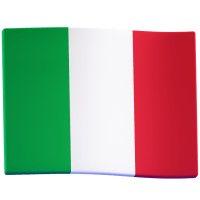Chinese phrases and expressions you can learn today
Start learning the most common Chinese phrases
With a focus on practical communication skills, you'll be able to confidently navigate everyday situations and conversations in Chinese.

Common Chinese phrases and expressions
Top 10 Chinese phrases and sentences you need to know
We have prepared a list of common Chinese expressions that will help you have a basic conversation in Chinese in no time. Let's dig in!
1. 早上好。 = Good morning.
If you find yourself in Hong Kong it is always polite to say “Hi” every morning because Chinese speakers are really sociable. “Good morning” in Chinese is "早上好".
Now enjoy being greeted by a native speaker:早上好。
2. 下午好。 = Good afternoon.
But what if it's later in the day and you want to greet someone from China? Well, “Good afternoon” in Chinese is "下午好".
Now listen to how a Chinese speaker would pronounce it:下午好。
3. 我叫Mondly。 = My name is Mondly.
Let's say your name is Mondly, you are traveling to Beijing and meet someone on the street. To introduce yourself you can say "我叫蒙德利" which means "My name is Mondly" in Chinese.
Listen to how a person from Beijing would pronounce this phrase:我叫Mondly。
4. 很高兴认识你。 = I'm pleased to meet you.
Now that you have introduced yourself, a Chinese speaker would respond "我很高兴见到你" which means "I'm pleased to meet you" in Chinese.
Listen to a native Chinese speaker saying that exact sentence to you right now:很高兴认识你。
5. 你好吗? = How are you?
At this point, it might be polite to ask the person you are having a conversation with "How are you?" in Chinese.
It’s really easy to pronounce. Here's how to say it:你好吗?
6. 很好,谢谢。你呢? = Fine, thanks. And you?
If, on the other hand, a Chinese speaker asks you first how are you doing, this is how you can answer politely. Apply the unspoken rule of politeness everywhere you go and many doors shall joyously open in your path.
Here's a native speaker showing you how to say it:很好,谢谢。你呢?
7. 我要一杯啤酒。 = I’d like a beer.
And because you might find yourself in a bar when visiting China you might have to learn how to order a beer in Chinese.
Let a native Chinese speaker show you how it's done:我要一杯啤酒。
8. 对不起。 = I'm sorry.
There are times when what you ordered is out of stock, so a bartender might say "对不起" which means "I'm sorry" in Chinese.
Listen to how it's pronounced:对不起。
9. 一会儿见! = See you soon!
This is a good way of saying "See you soon" in Chinese to a co-worker from Shanghai that you are probably going to see the next day.
Delight your senses with a Chinese speaker saying the phrase:一会儿见!
10. 再见。 = Goodbye.
Let's end with the best way to end a pleasant conversation politely. This is another way of saying "Goodbye" in Chinese.
Here's how a person from China would pronounce it:再见。
Common Chinese phrases

Chinese phrases for hotel reservation
Chinese phrases for eating out
Chinese phrases for information and direction

The benefits of learning the most common Chinese phrases first

Get smarter day by day
Learning a new language is a perfect way to boost your IQ. In no time, your brain will make new connections and associations and you’ll feel that learning Chinese was one of the best choices you ever made.

Have real conversations in Chinese today
Once you start learning a few basic sentences in Chinese you will have the knowledge to start your first Chinese conversation. That’s why, at Mondly, we’ve created experiences that simulate real-life conversations to get you speaking Chinese in no time.

Become fluent in Chinese quicker
Starting with the basics, we quickly lay a foundation for you to learn more complex Chinese phrases and sentences. We gradually build your Chinese knowledge so you get fluent faster than you could imagine.

Feel how easy to learn the Chinese language can be
Every language experience should start gradually, from the easiest to the more complex concepts. Starting with the easiest and most common Chinese phrases, you will feel confident in your ability to learn a new language. That’s one of the core principles Mondly is built on.











